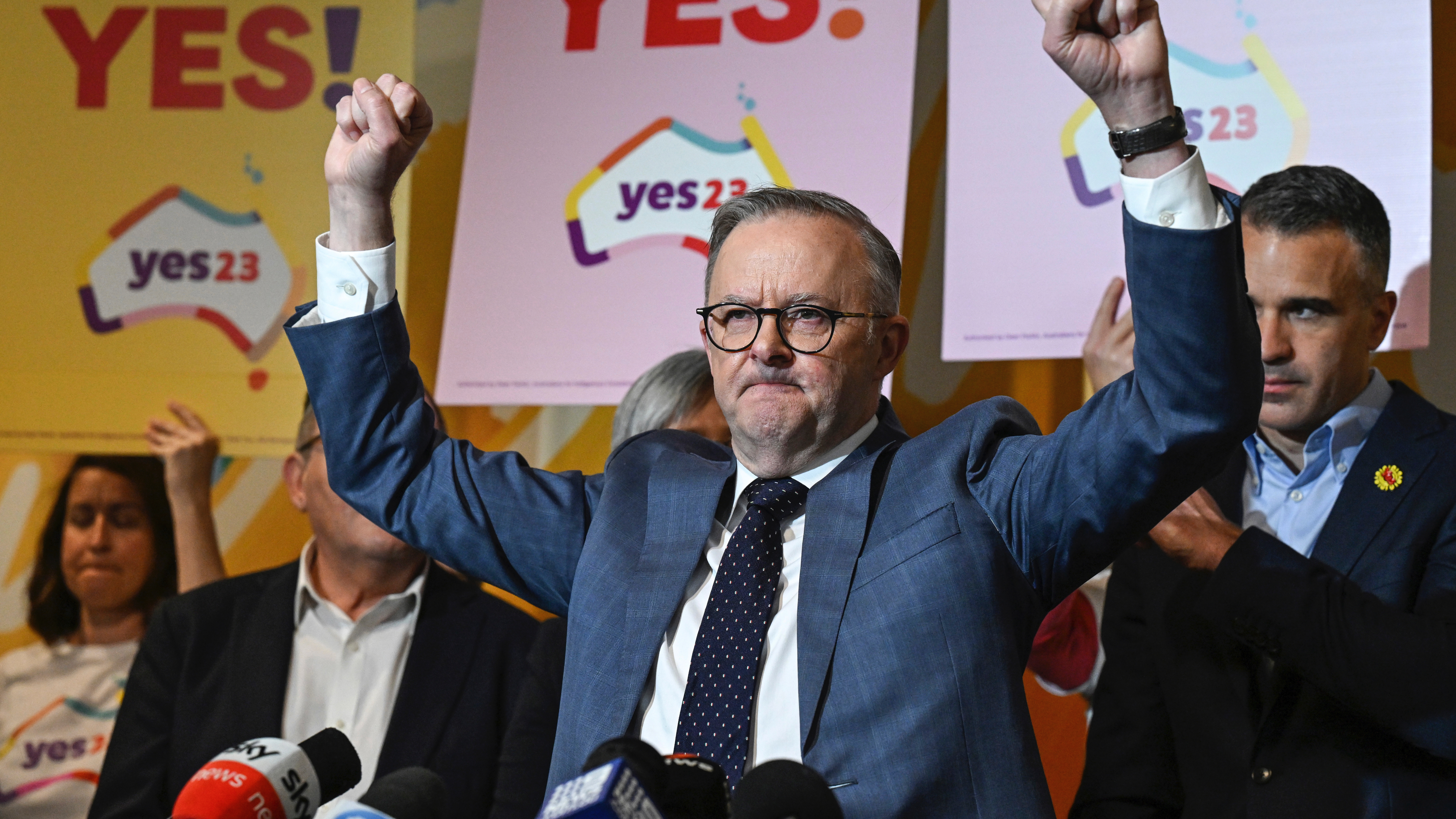Australians ready for a historic referendum recognizing First Nations people
Jade Appo-Ritchie of the Bunda Clan of the Gooreng Gooreng Nation in Australia, said she grew up celebrating her First Nations heritage but hiding it in public.
The generation before her, she said, had it even worse.
“In my grandparents’ day, the government actually told Indigenous people where they could live, who they could marry,” she said. “And then, in my father’s generation, he grew up under the White Australia Policy, [where] the intention was to assimilate. Breed out the Black. Get rid of Indigenous culture altogether.”
But now, Appo-Ritchie said, she sees a chance for a new beginning in a campaign to establish a constitutional advisory body for Aboriginal and Torres Strait Islander peoples called Voice to Parliament (or simply, “the Voice”).
The body would guide the government on issues that impact First Nations people. But despite the Voice’s unifying vision, the debate has turned toxic and fierce, exposing deep divisions within Australian society about its identity and history of colonization. Voters will decide on the referendum on Oct. 14.
The Voice was first recommended in 2017 by a group of about 250 Aboriginal and Torres Strait Islander peoples gathered at Uluru, a sacred spot in the Australian outback, for a constitutional convention.
There, they produced a document called the Uluru Statement from the Heart, proposing an advisory body made up of Aboriginal and Torres Strait Islander peoples. But support for the plan was not universal, and a group of seven delegates walked out of the summit in protest.
Gwenda Stanley, a Gomeroy woman and activist, was one of them.
“Our concerns are always about Aboriginal sovereignty and land rights in this country, which have not been addressed. And the injustices,” she said.
Stanley is part of the progressive “no” camp, a group separate from the main “no” campaigners, who are generally seen as conservative.
She opposes the Voice, which she said is a distraction. Instead, she said, First Nations people need to focus on the big stuff — “which is giving our people back land and paying for the compensation and reparations of the genocides and the continual genocide of dispossession and annihilation of our people.”
The progressive “no” camp wants treaty that grants land rights and self-determination. Australia is the only commonwealth country that does not have a treaty with its First Nations people.
Another argument from the progressive “no” camp is that the Voice is toothless — it’s just an advisory body without any real power.
Kelly Menzel, a Najuri woman and the associate dean of education at Southern Cross University in New South Wales, is undecided about the referendum.
It would mean putting her faith in the government and the system, something that seems unrealistic after at least 280 years of oppression, she said.
First Nations people have lived in Australia for at least 55,000 years. However, the British colonists who arrived in 1788 would go on to describe the land as Terra Nullius,” meaning “land belonging to nobody.”
First Nations people were forced off their land and into missions and reserves where their lives were controlled by white administrators.
Today, disparities between First Nations people and the rest of the population are stark.
Aboriginal and Torres Strait Islander peoples make up 3.8% of Australia’s population as of 2021, but they account for 32% of its prison population. About a third live below the poverty line, and the average life expectancy is eight years lower than for the rest of the population.
In 2008, then-Prime Minister Kevin Rudd committed to righting the wrongs of the past by introducing the Closing the Gap framework to improve graduation rates and employment for First Nations people.
But progress has been slow, and changing the constitution takes work. Of 44 constitutional referendums in the country’s history, only eight have succeeded. For a referendum to pass, a majority of Australians have to vote for it, and there has to be majority support in four of the six Australian states.
Recent polls predict Australians will reject the Voice by sizable margins. But proponents are still praying for a miracle as Election Day arrives.
